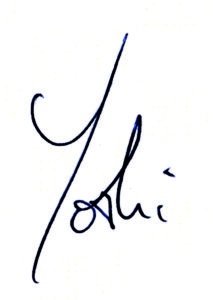If you’ve traveled by air in the last few decades, you’ve probably experienced a feeling similar to the one I had last week as I watched my carry-on bag go through the X-ray machine: Did I remember to remove that water bottle I had in the car? Are all of the creams and gels in my toiletry kit under 3.4 ounces? I didn’t happen to bring a pocket knife or nail clipper with me, did I?
On this particular trip, I had something especially precious in my bag: a small (and, yes, kosher) Torah scroll which I had brought to Mexico with me for a bat mitzvah ceremony. Everything went smoothly on my journey there. The TSA agent did ask me to open the bag, looked at the scroll, realized what it was, and sent me on my way.
Things didn’t go as smoothly on the return trip. The agent at the Cabo San Lucas airport inspected the Torah scroll and then called her supervisor who explained to me that it qualified as a “blunt object” and told me that I couldn’t carry it on the plane. After a rather distressing and somewhat anxiety-inducing conversation that, at one point, I worried might escalate into an international incident, I agreed to exit security and check the Torah through to Los Angeles. I found one of those vendors near the entrance of the airport to provide me with a sturdy box into which I placed the bag containing the scroll. We stuffed it carefully with packing materials and wrapped the whole thing up in cellophane. As I checked it at the counter, I explained to the agent that it was a sacred object and that I was counting on Delta Airlines to take especially good care of it.
Reflecting on this experience, I do understand how, if you’re not familiar with what a Torah scroll is, you might conceivably conclude that something made of two wooden sticks might be considered a “blunt object,” but it was quite shocking to actually hear those words applied to our Torah.
“Blunt objects” are used to assault, to harm, to maim and even kill. How could someone think that a Torah scroll could ever be used that way? Its purpose is to help us to become more compassionate, loving, caring people. Its central message—according to no less an authority than Rabbi Akiva himself—is “love your neighbor as yourself.” A blunt object? Quite the opposite!
Of course, I know that words of Torah can sometimes be distorted and used in hurtful ways either maliciously or simply through a lack of understanding about our tradition of interpretation. But at its core, our Torah truly is—as the Proverb would have it—“A tree of life to those who hold it dear!”
!עֵץ־חַיִּים הִיא לַמַּחֲזִיקִים בָּהּ
Waiting a bit nervously at baggage claim at LAX a few hours later, I thought of that verse as I saw the box with the Torah scroll appear on the conveyor belt. I carefully unwrapped the cellophane, opened the box, unzipped the bag, and lifted the small scroll into my arms. A few of the other passengers looked on, some a bit puzzled, some with knowing smiles on their faces. I held the scroll in my arms, this small but mighty tree of life, gracious, soft, and smooth.
Shabbat Shalom,

—Rabbi Yoshi
P.S.: Join me and Rabbi Sari tomorrow morning at 8:45 a.m. on our campus or online for Spirit of Shabbat Torah study!
